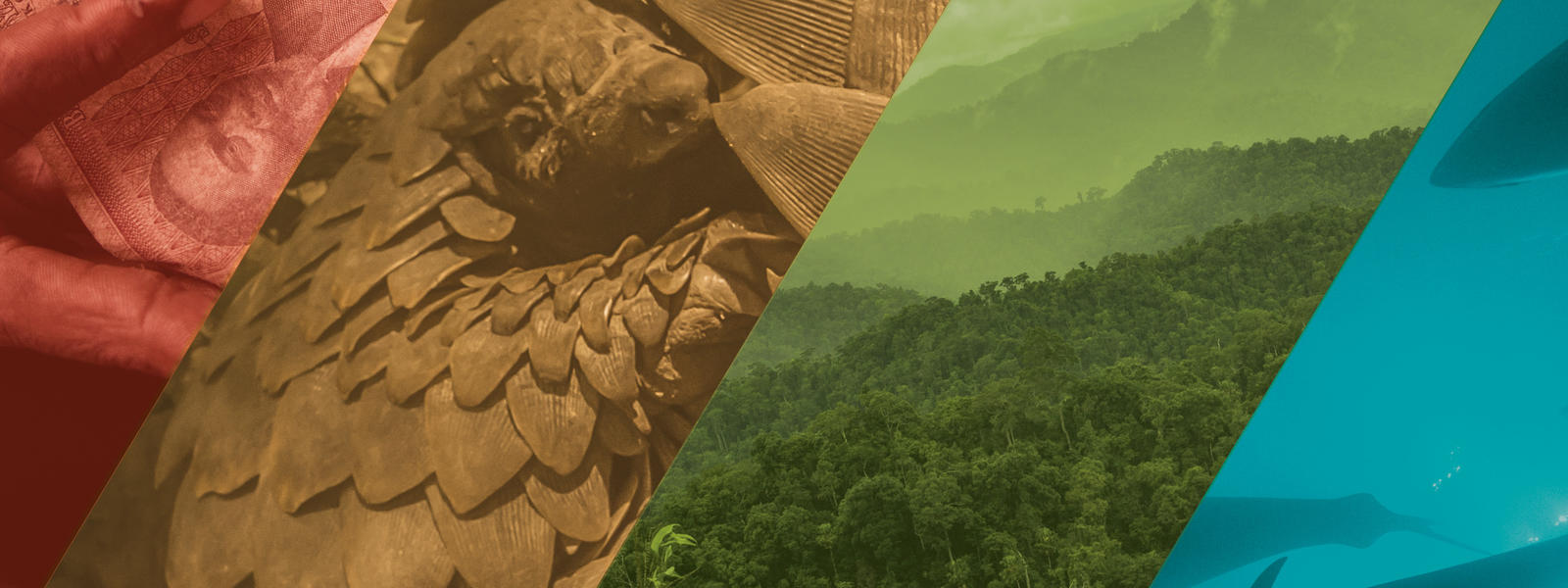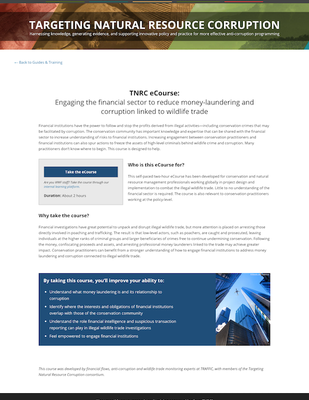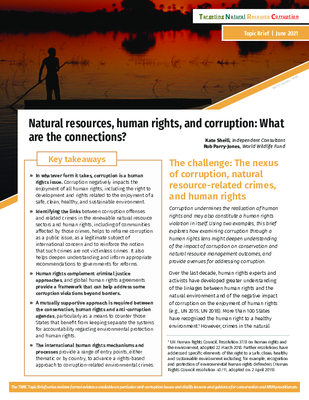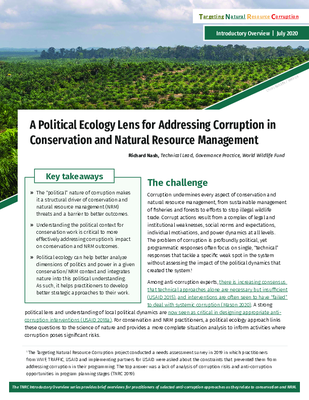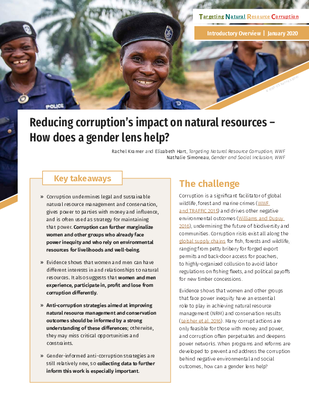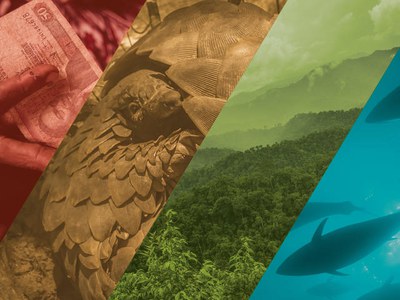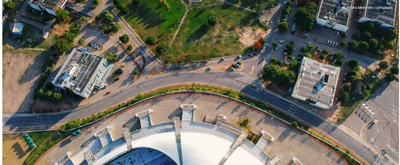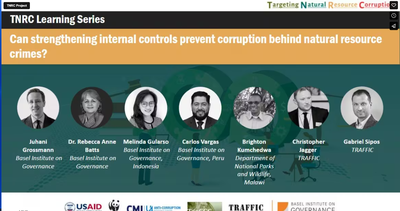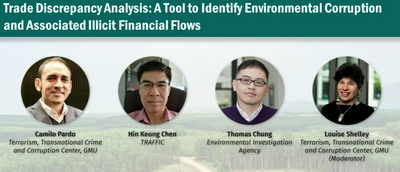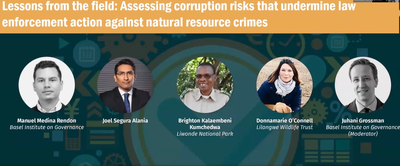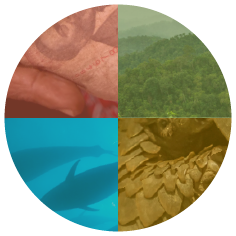Targeting Natural Resource Corruption (TNRC) seeks to improve biodiversity outcomes by helping practitioners to address the threats posed by corruption to wildlife, fisheries, and forests. TNRC harnesses existing knowledge, generates new evidence and supports innovative policy and practice for more effective anti-corruption programming. The project is implemented by a consortium of leading organizations in anti-corruption, natural resource management, and conservation: World Wildlife Fund (WWF), the U4 Anti-Corruption Resource Centre at the Chr. Michelsen Institute, TRAFFIC, and the Terrorism, Transnational Crime and Corruption Center (TraCCC) at George Mason University.
The Challenge
Corruption undermines global development and biodiversity conservation. It distorts good governance, undermines the sound management of natural resources, facilitates environmental crime and illegal trade, and drives resources away from the public good and into private hands. TNRC addresses this challenge through three strategic approaches:
Build Knowledge
- Distill existing anti-corruption knowledge to make it relevant for NRM practitioners
- Research and strengthen evidence on how anti-corruption efforts can help improve biodiversity outcomes
Communicate for Change
- Engage networks and partnerships to exchange knowledge and amplify the reach of anti-corruption information
- Empower others to implement context-appropriate anti-corruption initiatives in NRM
Apply Knowledge and Test Hypotheses
- Pilot and learn from new approaches
- Apply broader anti-corruption interventions under Associate Awards
The Award
TNRC is a Leader with Associates (LWA) award. The Leader Award is managed out of WWF-US, and supports research, knowledge dissemination, networking, and piloting new approaches. Up to $35 million for Associate Awards may be mobilized by USAID country offices and other operating units, at their discretion, to support analysis and/or implementation of context-specific anti-corruption programming. The Associate Awards will leverage and contribute to TNRC's knowledge agenda, while responding to specific programming priorities agreed between USAID missions/operating units and TNRC.
For more information, visit the TNRC website.


